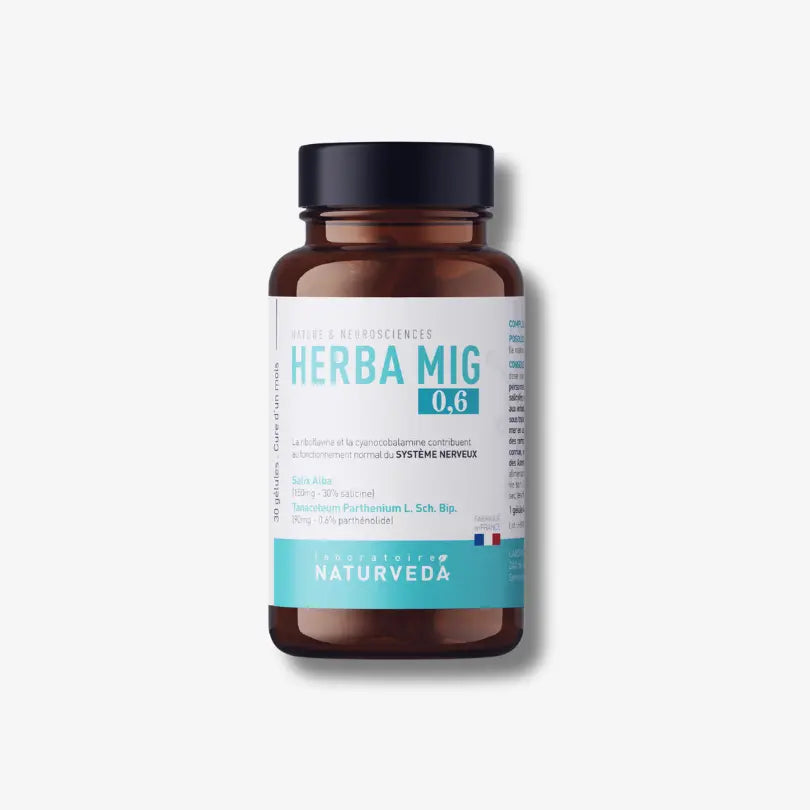Although there are many festive occasions throughout the year, creating warm and friendly moments, they still represent a significant challenge for many people with diabetes. Indeed, celebrations are often characterized by tables abundant with delicious food. The temptation of dishes rich in sugars and carbohydrates remains omnipresent, imposing on people with diabetes the delicate challenge of combining celebration with the imperative need for rigorous management of their disease. Finding ways to enjoy these periods of joy without compromising health therefore becomes essential, although it can be complex.
Meal management
Get involved in meal planning
Getting involved in planning holiday meals is an interesting first strategy for successfully managing the nutritional needs linked to diabetes. By paying particular attention to the composition of festive meals , it becomes possible to design balanced menus adapted to the specific constraints of the disease.
Choosing to favor fiber-rich foods , such as leafy green vegetables and whole grains, plays a crucial role in slowing the absorption of carbohydrates, helping to maintain stable blood sugar levels. The variety of dishes offered during the festivities also provides an opportunity to incorporate various sources of lean protein , thus facilitating a balanced nutritional intake.
It's important to emphasize that skipping meals before festivities is not a recommended approach , as it could further imbalance blood sugar levels.
Carbohydrate and sugar management
Managing diabetes during the festivities also requires some control over carbohydrates and sugars, components frequently present in many festive dishes. Indeed, it is important to systematically evaluate the composition of the meal , particularly with regard to foods containing carbohydrates and fats.
In these circumstances, the ideal is to favor complex carbohydrates , which are found in whole grains, vegetables and fruits. This provides nutritional benefits while avoiding sudden blood sugar spikes. Additionally, exploring sweet alternatives , such as natural sweeteners, may be helpful in satisfying sweet cravings without compromising blood sugar balance. Thus, it often becomes possible to reconcile taste pleasure and metabolic health.
Depending on medical recommendations and insulin protocol, it is sometimes advisable to adjust insulin injections based on the amount of carbohydrates.
The case of alcohol
Alcoholic drinks are generally an essential component of celebrations. For people with diabetes, alcohol consumption requires a thoughtful approach due to its significant impact on blood sugar levels. Indeed, consuming alcohol outside of meals increases the risk of hypoglycemia . This is why it is recommended to avoid the consumption of certain alcohols such as whiskey or vodka outside of meals.
You should also be careful about sugary alcoholic drinks , such as sweet wine and liqueurs, as they can increase blood sugar levels. It is preferable to favor traditional dry alcohols. The effects of alcohol may mask those of hypo or hyperglycemia.
When it comes to alcohol, moderation remains the key : a recommendation that is valid for both people with diabetes and those who do not!

Stay active during the holidays
Beyond dietary management, physical activity remains an essential pillar for maintaining a stable glycemic balance, even during festive periods. Finding creative, seasonally appropriate ways to stay active can make a big difference. Family activities such as after-meal walks or outdoor play can be great opportunities to regulate blood sugar levels.
Manage your stress well
Festive events can be accompanied by a dose of stress linked to preparations, social gatherings and personal demands, particularly as an organizer. Unfortunately, for people living with diabetes, stress can significantly impact blood sugar levels . Indeed, the hormones secreted in the event of stress promote the rise in blood sugar levels. In the long term, chronic stress can affect blood sugar balance. Learning to manage your stress is therefore particularly important.
Relaxation techniques such as meditation, deep breathing or yoga can help alleviate stress. Additionally, anticipating preparations and getting help can help maintain emotional stability and, by extension, promote better blood sugar control. In addition, it is possible to use plant-based food supplements to relieve anxiety and stress.
The role of social support
Having a strong support network is a fundamental resource. The role of social support in diabetes management should not be underestimated, especially during festive periods. Dialogue openly with family, friends and loved ones allows you to share specific diabetes challenges and get the support you need.
Creating an understanding environment where dietary choices and special needs are respected goes a long way to making diabetes management easier during the holidays. By sharing responsibilities related to meal planning or physical activities, the weight of daily stresses can be alleviated.
In case of excess
Despite efforts to maintain a healthy lifestyle, diabetes management may not always go as planned during the holidays. Recognizing the signs of blood sugar fluctuations and being prepared to respond remains an essential skill. For this, and regardless of the location or the course of the festivities, it is imperative to always have the complete equipment with you to carry out blood sugar checks.
In case of hypoglycemia
Even during the festivities , hypoglycemia is still possible . A meal high in carbohydrates and sugar can cause a rapid rise in blood sugar followed by increased insulin release, leading to hypoglycemia. Signs of hypoglycemia include headaches, feeling tired and hungry, mood swings, paleness, dizziness, blurred vision, difficulty concentrating, or even heavy sweating.
Far from being harmless, hypoglycemia can lead to loss of consciousness, or even more serious consequences. It is therefore essential to act immediately by ingesting a sweet product equivalent to 15g of sugar (such as a glass of fruit juice or four cubes of sugar). Then, it is necessary to recheck blood sugar levels approximately 30 minutes after taking the carbohydrate. If hyperglycemia persists, you must then repeat taking 15g of carbohydrate and recheck until adequate blood sugar levels are obtained. When going out, it is essential to always have a sweet product with you.
In case of hyperglycemia
Hyperglycemia generally manifests itself as a feeling of thirst associated with dry mouth, a frequent need to urinate, itching or even a feeling of sand in the eyes. Unlike hypoglycemia, hyperglycemia does not present immediate risks.
In this situation, it is recommended to consume an unsweetened drink , limit sugary foods and recheck blood sugar levels within two hours to monitor its progress. A medical consultation may be necessary in certain cases, particularly if hyperglycemia induces significant dehydration affecting the general condition.
Adapt your treatment
Adapting your treatment according to meals and your own specificities is essential to maintain balanced blood sugar levels. For insulin, it is recommended to perform the rapid insulin injection when the dish arrives , while taking into account the quantity of carbohydrates consumed as an aperitif. If there is a prolonged wait between dishes, it is best to avoid snacking . If the blood sugar level is between 0.90 and 1.20 g/l before the meal, it is generally possible to postpone the insulin injection , ideally in the middle or at the end of the meal, in anticipation of subsequent consumption of starchy foods and dessert which also provides carbohydrates.
For insulin pump users, programming the bolus injection duration can be considered if the function is available on the pump. It is important to note that postponing or adjusting treatment depends on several factors , including the insulin therapy regimen, the types of insulins used (each having a specific duration of action), and the usual schedule of treatment. injection.
Regarding oral treatments, it is recommended to take them with meals . However, care must be taken because certain medications such as glinides or sulfonamides can cause hypoglycemia. In case of doubt or need for adjustment, seeking advice from your treating physician or endocrinologist remains the best solution for optimal adaptation of the treatment.
After the holidays
After the festive periods, opting to return to a diversified and balanced diet remains the best advice for maintaining optimal control of your diabetes and ending these festivities with complete peace of mind. It is crucial to remain attentive to your feelings of hunger and fullness , especially after a series of excesses which could influence the appetite. Returning to your usual eating schedule is recommended.
It is important to resume your treatment habits and monitor your blood sugar regularly . There is no need to opt for a drastic diet, because a balanced diet is built over several days. All you need to do is quickly reestablish your usual eating habits, favoring a varied, balanced diet moderate in carbohydrates.
To limit the consequences of frequent overeating during the holidays, it is advisable to reduce the consumption of foods rich in fat . Favoring foods rich in fiber such as fruits and vegetables in different forms (raw, cooked, frozen) also helps to facilitate intestinal transit.
It is also recommended to drink plenty of water , whether it is water, vegetable broths or herbal teas, to drain the body. Resumption of appropriate physical activity or intensifying a routine already in place, without excess, is also an excellent way to compensate for excess food and stabilize blood sugar levels. Walking, for example, turns out to be an effective way to achieve this balance.
Managing your diabetes during the holidays requires a comprehensive approach encompassing meal planning, managing carbohydrates and sugars, paying attention to alcohol consumption, engaging in appropriate physical activities, stress management and support social. The festivities can be a joyful and rewarding time, even for those living with diabetes, as long as you maintain constant awareness of your metabolic health. It is therefore entirely possible to fully enjoy the festivities while preserving your well-being.
References :
French Federation of Diabetics.How can I adapt my treatment during the holidays?
French Federation of Diabetics. How can I reconcile diabetes and holiday meals?
Geneva University Hospitals. (Updated February 8, 2019). What to do in case of hyperglycemia?
Geneva University Hospitals. (Updated February 8, 2019). What to do in case of hypoglycemia?
Ameli.fr. (November 10, 2022). Tips and advice before the holidays!






